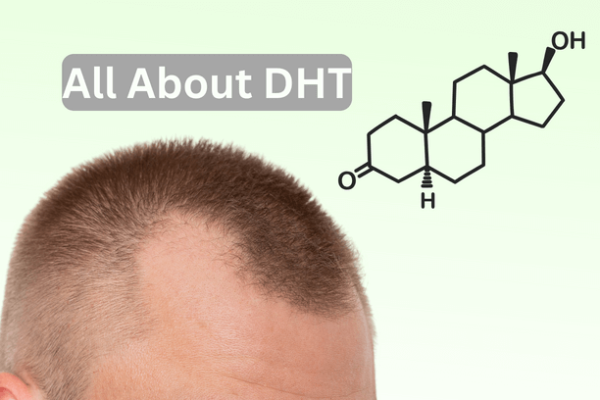Understanding DHT: The Culprit Behind Acne Breakouts | |||
 1,588 1,588  0 0  0 0 | |||
| Dihydrotestosterone (DHT) is a potent androgen hormone derived from testosterone that significantly contributes to acne breakouts, especially in adults. While not the only cause, DHT's impact on sebum production and other skin processes makes it a major factor in acne development.
Increased Sebum ProductionDHT binds strongly to androgen receptors in sebaceous glands, which are responsible for producing sebum, a naturally occurring oily substance that lubricates the skin. This binding action triggers a significant increase in sebum production. This excess sebum is a primary contributor to clogged pores and the subsequent development of acne lesions. Essentially, the more sebum produced, the higher the risk of pore blockage.
Enlarged Sebaceous GlandsBeyond increasing sebum production, DHT also stimulates the growth and enlargement of the sebaceous glands themselves. This enlargement leads to an even greater capacity for sebum production, further exacerbating the problem and increasing the likelihood of pore clogging and acne formation.
Increased Keratin ProductionDHT's influence extends to keratin production. Keratin is a protein forming the skin's protective outer layer. An overproduction of keratin can contribute to the formation of comedones, which include blackheads and whiteheads. These comedones are essentially clogged pores caused by a buildup of sebum and dead skin cells. This blockage traps sebum and bacteria, creating an ideal environment for acne to flourish.
Inflammation and Bacterial GrowthWhile DHT doesn't directly cause inflammation, the excess sebum and clogged pores it promotes create an environment that encourages bacterial growth. Specifically, Cutibacterium acnes (formerly Propionibacterium acnes) thrives in these conditions. The proliferation of this bacteria triggers an inflammatory response, resulting in the red, swollen pimples that characterize inflammatory acne lesions.
Multifactorial Nature of Acne and Treatment StrategiesIt's essential to recognize that acne is a complex condition with multiple contributing factors. While DHT plays a significant role, other factors such as genetics, broader hormonal imbalances (beyond DHT alone), diet, stress levels, and hygiene practices all influence acne development. Therefore, solely targeting DHT may not completely eliminate acne. However, managing DHT levels can be a vital component of a comprehensive acne treatment plan. This often involves the use of topical or systemic treatments designed to reduce sebum production or inhibit DHT's action within the skin. Tags: DHT Dermatology Dihydrotestosterone Hormonal Imbalance Hormone | |||
| |||
| | |||
|
 3350
3350 